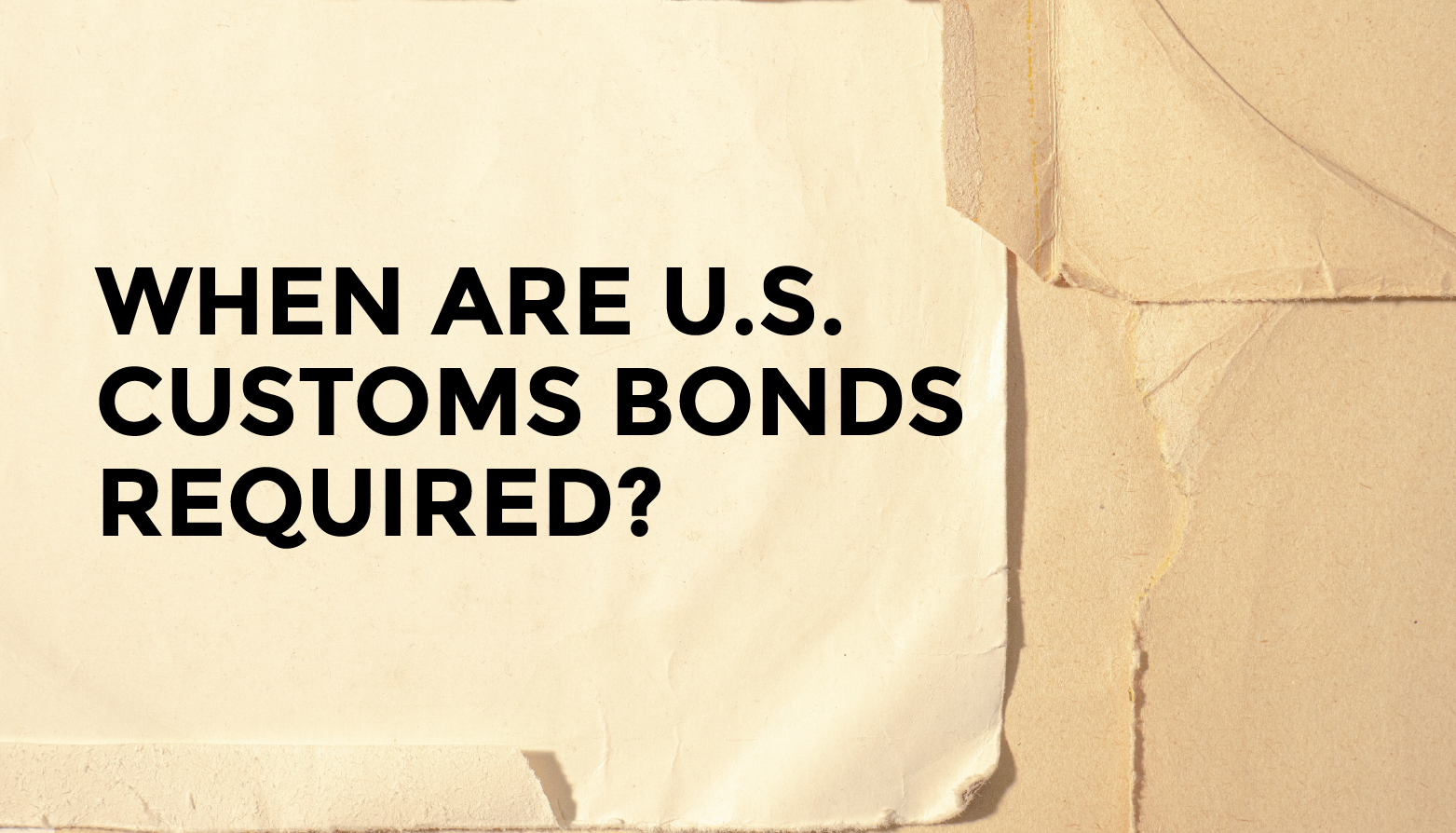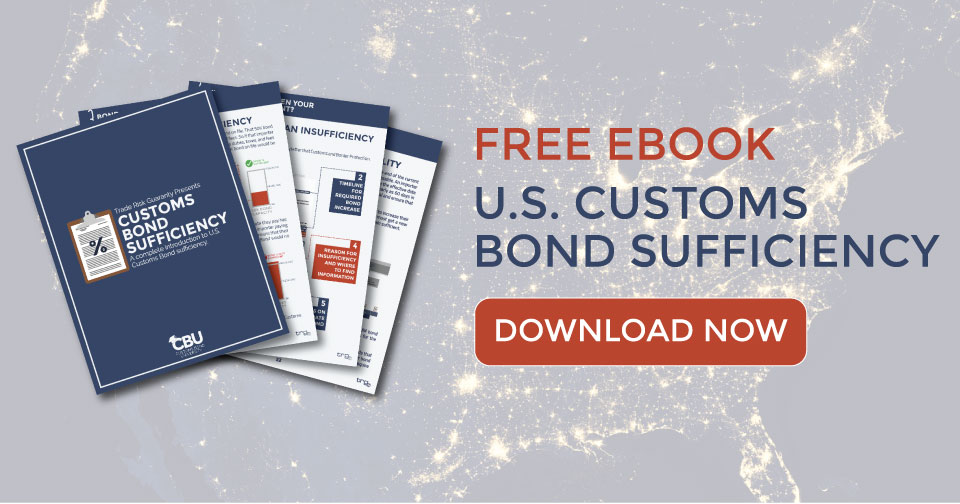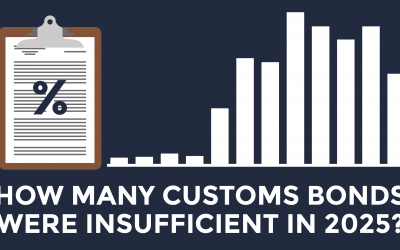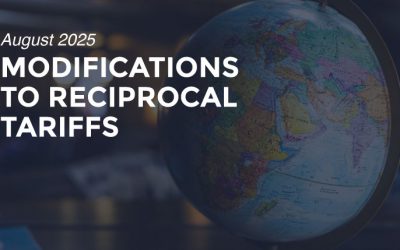If you are new to importing or brushing up on the basics, it is important to know when Customs Bonds are required while importing into the United States.
When it comes to international trade, compliance with customs regulations is paramount. One essential aspect of this compliance is the use of custom bonds. We’ll review customs bonds for importing goods and explore the scenarios in which they are required. Whether you’re a seasoned importer or just starting in international trade, understanding when customs bonds are required is crucial.
What is a Customs Bond?
Simply, customs bonds are financial guarantees that importers provide to customs authorities. They serve as a commitment to follow customs regulations and fulfill financial obligations. Customs bonds play a pivotal role in ensuring the integrity of the importing process and are required in various situations. Depending on what you are importing or transporting, the size of your customs bond will vary. But when will you need one?
Common Situations Requiring a U.S. Customs Bond
No importer is identical to the other. Whether it’s the reason you’re importing goods or the size of the shipment, you’re different than any other. Yet, you’re all looking for similar types of import bonds. We’ve outlined several scenarios that discuss the common types of bonds.
Importing Goods into the United States
One of the most common scenarios where customs bonds are required is when importing goods into the United States. U.S. Customs and Border Protection (CBP) mandates using import bonds to ensure that importers comply with trade laws and regulations. The specific bond amount may vary based on the value of the goods.
Importing Restricted or Controlled Goods
Certain goods, such as alcohol, tobacco, or firearms, are subject to additional regulations and may require specialized bonds. These bonds help customs authorities monitor and control the importation of sensitive or regulated items.
Frequent Importers of Goods
Frequent importers often opt for continuous customs import bonds, which cover multiple shipments over time. This eliminates the need to obtain separate bonds for each individual shipment, streamlining the import process.
Shipping Goods to a Trade Show
Temporary Import Bonds are necessary when goods are temporarily brought into a country for specific purposes, such as trade shows or exhibitions. These bonds ensure that the goods will be re-exported within a specified timeframe.
Using a Bonded Warehouse
Warehouse entry bonds are required when goods are placed in bonded warehouses before customs duties are paid. These bonds ensure that the duties and taxes will be paid when the goods are released from the warehouse.
Transporting Goods
For the movement of goods that have not been cleared through U.S. Customs, transportation and export bonds are often required. These bonds guarantee compliance with customs regulations during transit.
Benefits of Having a Custom Bond
Having a custom bond offers several advantages to importers. It helps avoid delays at customs, ensures compliance with regulations, and builds trust with customs authorities. Importers with bonds are more likely to have their shipments processed efficiently, reducing the risk of disruptions. Simply put, you must acquire an import bond prior to filing a Customs Entry Form or even before the goods leave port overseas to properly file an ISF.
By obtaining your Customs import bond prior to goods leaving port overseas, you’ll be able to receive your goods at your warehouse or destination faster and more efficiently – without unnecessary stress.
How to Obtain a Custom Bond
Obtaining a custom bond involves partnering with a surety company or a licensed Customs broker. These experts can guide importers through the process, ensuring that the appropriate bond type and amount are selected. They also assist with the necessary paperwork and compliance requirements.
In the complex world of international trade, customs bonds are a crucial tool for ensuring smooth operations and compliance with customs regulations. By understanding when and why custom bonds are required, importers can navigate the intricacies of global trade with confidence. Whether you’re a seasoned importer or just starting your journey, remember that professional advice and assistance are invaluable in this field. Make sure to consult with experts who can help you secure the right custom bond for your specific needs.
Learn More about U.S. Customs Import Bonds
Watch the following video for a brief explanation of Customs bonds.
Did you like that video? Subscribe to our YouTube Channel to explore more informative videos on international trade topics.







